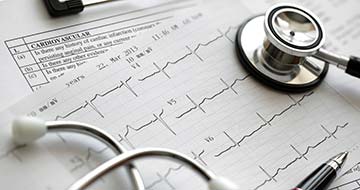Services
The first step in your care process is to understand the nature of your disease so that we can diagnose your condition.
Cardiac Electrophysiology, is the study of the electrical activities of the heart, specifically for the purposes of diag...
When our patients present with problems that may be cardiovascular in nature, we help determine the most likely diagnosi...
We help our patients improve blood flow in their arteries and veins by using very small tubes and specialized tools to d...
When the heart is functioning normally, the arteries are clear and open to allow for easy passage of blood through and o...
The highly trained surgeons and specialists at Biltmore diagnose and treat structural heart disease. We understand the n...
Complications of Diabetes: Heart Disease
Heart disease can be one of the complications of diabetes. When a person has diabetes, they may have higher blood sugar levels, which can increase the risk for plaque buildup in their arteries, which could cause coronary heart disease, which may lead to a heart attack and perhaps even death. But diabetics can take steps to stop this series of events. Here are nine ways to prevent or delay heart disease and stroke:
- Eat a heart-healthy diet that includes fiber because high-fiber foods can help lower blood cholesterol. Fiber choices include whole-grain breads, oatmeal, oat bran, dried beans and peas, fruits and vegetables. Reduce the amount of saturated fat found in meats, poultry skin, butter, dairy products with fat, and shortening that can raise cholesterol. Limit trans fat that also can raise cholesterol. Trans fat is commonly found in crackers, cookies, fried foods, cake mixes, salad dressings and snack foods.
- Keep blood sugar level under control by checking your blood sugar level regularly and taking medicines as prescribed. You also should have a hemoglobin A1C test at least twice a year to measure average blood glucose over the past three months. Your A1C target should be below seven percent.
- Reach and maintain a healthy weight. Obesity affects your ability to manage your diabetes.
- Exercise regularly. Physical activity of at least 30 minutes most days of the week can help keep your blood sugar level normal.
- If you smoke, quit. Smoking is especially bad for people with diabetes because both narrow the blood vessels and increase your chances of getting heart disease.
- Control your blood pressure and have it checked at every office visit. High blood pressure can make your heart work too hard and increase your risk for heart disease.
- Lower your cholesterol level to prevent narrowing and hardening of the arteries that carry blood from the heart to the rest of the body. Talk with your doctor to determine your target cholesterol numbers.
- Talk with your doctor about taking a low dose of daily aspirin to help reduce the risk of heart attack and stroke.
- If you have a mini-stroke, or transient ischemic attack, get help right away. Early treatment may help prevent or delay a future stroke.
People with diabetes who are at increased for heart disease are those who carry extra weight around the waist, have high cholesterol and blood pressure levels, or smoke. Making lifestyle changes to manage these risks can decrease the chances of developing heart disease.







